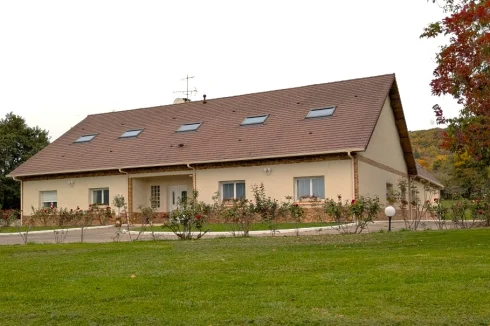Health Insurance for Visa to France
Monday 20 February 2023
Obtaining health insurance cover for a long-stay visa to France. UPDATED 20th Feb 2023.
All non-EEA nationals wishing to visit France for longer than three months, or to relocate permanently, are required to obtain a visa prior to their departure.
The visa application is made online at France Visas.
Article L313-6 of the Code de l'entrée et du séjour des étrangers requires that a visa is issued on condition of sufficient resources and health insurance cover for the duration of the stay, stating:
'L'étranger doit en outre justifier de la possession d'une assurance maladie couvrant la durée de son séjour et prendre l'engagement de n'exercer en France aucune activité professionnelle.'
This requirement applies for both a Visa Long Séjour Temporaire (VLS-T), for stays from three months to less than a year, and a Visa de Long Séjour valant Titre de Séjour (VLS-TS), which covers stays up to a year. The former would normally be used by those visiting France for up to a year, whilst the latter by those proposing to relocate to France permanently. For most nationals, no visa is required for a visit under 3 months, but if in doubt you need to check with your local consulate.
The condition above that the applicant cannot undertake a professional activity (salaried or self-employed) does not of course apply to those seeking a work visa.
Just what type of health insurance is required and would possession of travel health insurance and/or a Global Health Insurance Card (formerly EHIC) issued by the UK government satisfy the health insurance condition?
Up to Three Months
For stays up to 3 months, for which no visa is required, the rules are reasonably clear.
Under Schengen rules visitors must have 'travel medical insurance covering emergency medical, hospitalisation and repatriation (including in case of death). The minimum cover should be of €30.000. This insurance must be valid for the entire Schengen area and throughout the duration of the stay.'
As Schengen requires that visitors must be in possession of insurance that provides for repatriation, that means for UK nationals a GHIC on its own is not entirely adequate, even for a visit up to 3 months.
Indeed, the UK government, on its own website states that: 'The GHIC is not an alternative to travel insurance. It will not cover any private medical healthcare or costs, such as mountain rescue in ski resorts or being flown back to the UK. Make sure you have both a GHIC and a travel insurance policy that includes healthcare in place before you travel.'
Nevertheless, in May 2021 the French consulate in the UK agreed that a GHIC card was now an acceptable alternative to private medical insurance for a long-stay visa up to 180 days. You can read more at French Visa Health Requirements Eased.
Over Three Months
The requirement for health cover for a long stay has always been in place.
We therefore asked the French consular authorities what their requirements would be for a visitor visa for a stay over three months. They stated that:
'For a Visitor Long Stay visa (VLS-T or VLS-TS), an applicant must provide a health insurance for the full duration of the stay. The insurance must cover the visa’s entire validity period (1 year at the most). The applicant needs a private health insurance policy covering all medical expenses.'
The authorities also state that proof of payment of the policy must be shown.
For those of State retirement age, health cover though an S1 certificate (for European and UK nationals) would be sufficient, with the French consulate in London stating:
'A valid S1 Form is now accepted as evidence of medical coverage. Please provide a copy of your S1 Form. If you don’t hold a S1 Form, you will need to provide a private Health insurance, which must cover full requested long stay visa, up to 1 year.'
There are also indications that provided one of the applicants is eligible for an S1, both husband and wife can obtain cover through it. Those with a UK State retirement pension can obtain an S1 from the NHS Business Services Authority (see Guides below),
Nevertheless, due to the processing and validation timescales necessary for an S1, it is frequently necessary for such applicants to obtain a short-term PHI policy to cover the visa application and until their status has been approved by the local French health authority.
Travel Insurance or PHI?
In the context of a visit abroad, the difference between 'travel medical insurance' and a 'private health insurance' (PHI) policy is not always clear, as both are 'private' and the latter will need to be an 'international' policy.
Essentially, however, travel insurance covers treatment in the event of an emergency, whilst a private policy also provides cover for routine treatment and treatment for pre-existing conditions.
Travel insurance will also provide cover for you to be returned home for treatment, whereas a PHI policy will provide for your treatment to take place in the country you are visiting.
The former are also for more limited duration, normally 3 months (as insurers must comply with international rules on residency), whilst private policies cover a prolonged stay abroad.
Travel medical insurance policies also tend to have a cap on the maximum amount of cover and the scope of cover is more limited. A PHI policy should provide comprehensive cover, although all policies vary in their scope.
Finally, although those with a medical condition or aged 70+ are able to obtain travel medical insurance, it is far less easy for them to do so for a PHI. In their case, however, for UK and EEA retirees at least an S1 certificate should be possible, although they are likely to need a PHI policy for the visa application process, and until the S1 has been validated by the local French health authority.
As a result of those differences, the cost of a PHI policy is substantially higher than an average travel medical insurance policy.
In the end, the terms that are used are probably less important than the scope of the policy; French law requires that those who are resident in France have comprehensive cover.
That would clearly apply to those who are seeking to become resident in France, but even for stays over 3 months the requirement remains substantial.
Based on Article R.121-4 of the code l’entrée et du séjour des étrangers, the administrative doctrine on residence in France for more than 3 months requires 'un régime d'assurance privée offrant des prestations en nature d'un niveau comparable à celles offertes par le régime général français d'assurance maladie et maternité.'
However, there are very few policies on the planet that would cover 'all medical expenses' and even the French health system itself does not provide for complete cover in all circumstances. Thus, for routine medical expenses the State system only covers around 70% of the costs.
In addition, Art. R211-29, Code de l'entrée et du séjour des étrangers states: 'Le contrat d'assurance souscrit par l'étranger ou par l'hébergeant pour le compte de celui-ci doit couvrir, à hauteur d'un montant minimum fixé à 30 000 euros, l'ensemble des dépenses médicales et hospitalières, y compris d'aide sociale, susceptibles d'être engagées pendant toute la durée du séjour en France. '
The stated rule for UK nationals certainly appears to be tougher than is applied for other 'third-country' nationals, many of whom we know obtain a visa with a travel insurance policy. Whether the stance taken by the consulate in London could be challenged is doubtful but there are signs a slight softening of approach has emerged.
Fabien Pelissier, a health insurance broker in France, states that: "We provide health insurance to many foreign nationals for visa applications and, except when the application is otherwise marginal, the theoretical rules are not the ones applied on the field. In the overwhelming majority of cases, officials accept a wide definition of 'full' medical cover, on premiums that are bearable, as long as it covers the duration of the visa, is automatically renewed and shows that "medical treatments" are covered. Absence of a mention of an exclusion on the certificate of insurance is also important, but if one meets all those criteria then you're probably all set.."
One of the policies issued by the company has been accepted by consular authorities around the world for a visa application. The cost of the policy is around €1,200 for someone in their early 50s, far lower than many similar policies we have seen. The broker offers a refund of the premium if the policy is refused before the start date.
Some leading health insurers oblige applicants to commence their cover BEFORE their visa interview (when they are still in their home country), when of course there would be no benefit to the applicant. The insurers do so because they are unable to edit in advance either the certificate of insurance or proof of payment, or both. So, finding a policy that can cover you in the future AND provide you with all the necessary documents (proof of payment is the most difficult in that situation) can be tricky.
Some policies offer "moratorium" (automatic exclusions of existing conditions) which speed up applications and allow people with prior conditions to apply to the policy, BUT most insurers who do that will explicitly disclose that the policy is not 'comprehensive' on the certificate of insurance. Some companies will offer the same benefits, but with no mention on the certificate of insurance (as they consider this is confidential information). Fabien Pelissier advises that "Having a moratorium is like having a comprehensive travel insurance policy covering both emergencies and other stuff but with a medical review on each claim. We know of only 2 companies that offers both benefits."
Although of no solace to second-home owners, those who relocate permanently to France have a right of access to the State health system after three months legal residence. The application process may well take several additional months, but, provided you hold a PHI policy that includes a break clause, there is no need to retain the policy for the duration of your visa.
Nevertheless, care should be taken about taking out a policy of short duration, in the expectation that you will be covered by the statutory health system within a short while. In the first place, your application to join the health system is likely to take several months. We are aware of cases that have gone on for a year or more, often down to maladministration by the local health authority.
In the second place, if you have an accident or illness prior to joining the French system, when you make use of your private health cover, once that policy expires, more often than not you will cease to be covered for on-going treatment of that problem. So you might be best advised to take out a policy for say 12 months, but with a break clause in it once you obtain access to the state system. Not all health insurance policies offer such a break clause.
Thank you for showing an interest in our News section.
Our News section is no longer being published although our catalogue of articles remains in place.
If you found our News useful, please have a look at France Insider, our subscription based News service with in-depth analysis, or our authoritative Guides to France.
If you require advice and assistance with the purchase of French property and moving to France, then take a look at the France Insider Property Clinic.





